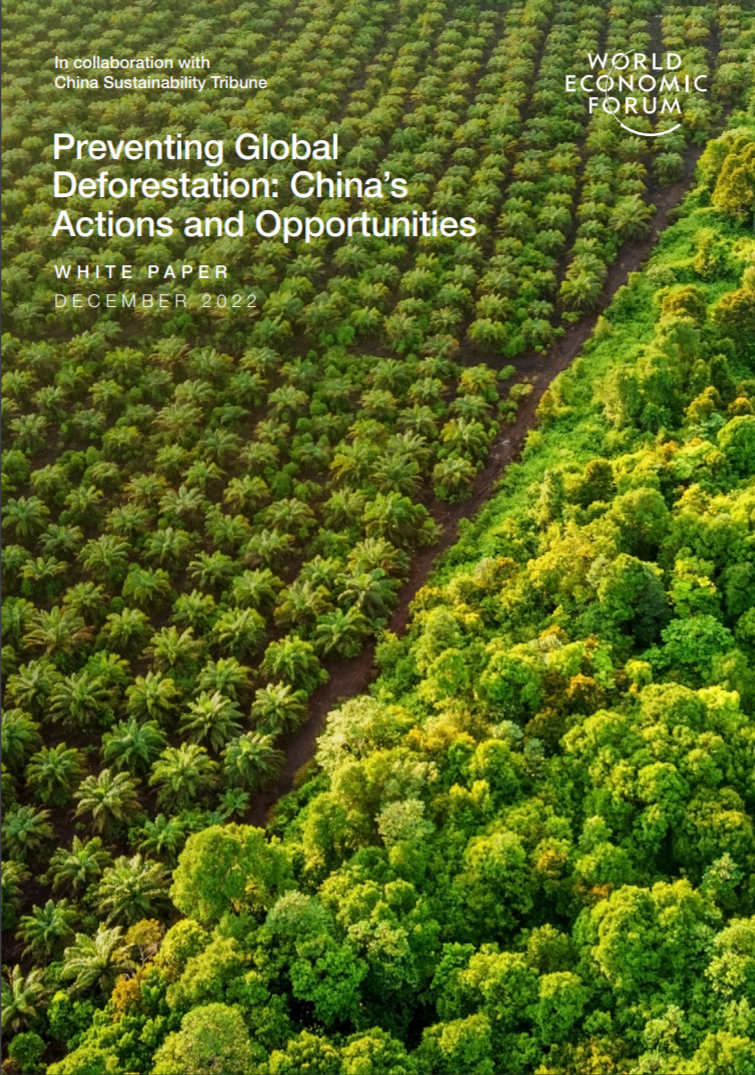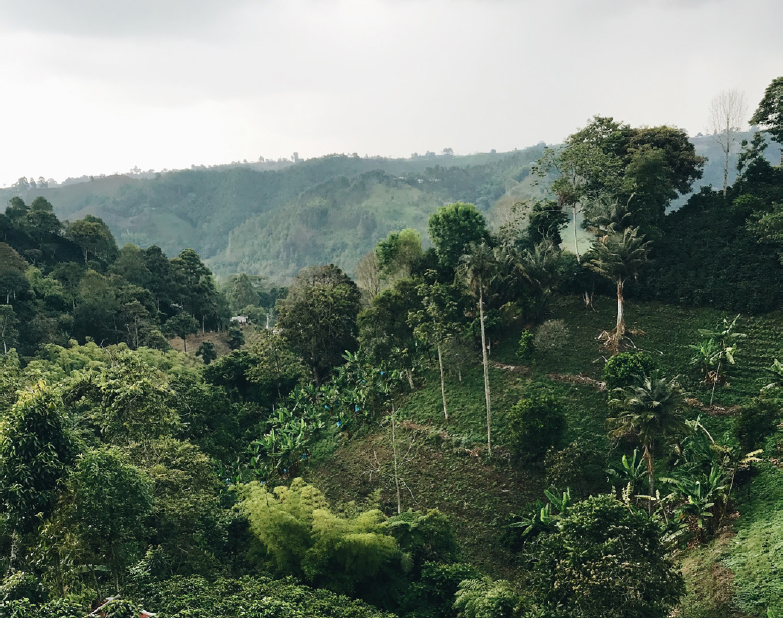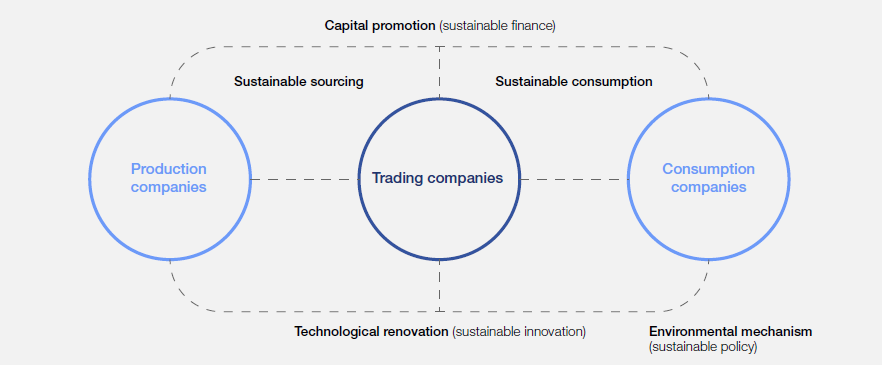Protecting the common future of the world's forests
2023-01-11未知责任编辑0
On the afternoon of December 16, local (Montreal, Canada) time, the Green Value Chain Side Event hosted by the World Economic Forum was held during the second part of the 15th Conference of the Parties (COP15) of the United Nations Convention on Biological Diversity. Moderated by Dr. Zhu Chunquan, Head of China Nature Initiatives, World Economic Forum, the conference was held at the Montreal and Beijing venues simultaneously.
The Preventing Global Deforestation: China's Actions and Opportunities, a joint research of the World Economic Forum Rainforest Alliance and China Sustainability Tribune, was officially released.

Covering an area of 4.06 billion hectares and 31% of the total land area, forests are the most primitive vitality and the green lungs of the earth, and the treasure house that feeds all things. However, the current global forest area continues to shrink, which poses challenges to climate change and biodiversity.
Protecting forests is a common goal and responsibility of the world. Many countries are already acutely aware of the impact of deforestation and land-use change on climate change and biodiversity. At the 26th UN Climate Change Conference of the Parties (COP26) in Glasgow, China signed the Glasgow Leaders' Declaration on Forests and Land Use with 144 countries and regions, committing to halt and reverse forest loss and land degradation by 2030.
So, what are the important drivers behind global forest loss, and how can this trend be halted and reversed? What are the new business prospects behind the transformation? How can China lead the way? In what direction should global actors work together?
The Preventing Global Deforestation: China's Actions and Opportunities (hereinafter referred to as the Whitepaper) examines and analyzes these issues.
Research Background
The Whitepaper shows that the carbon emissions generated by deforestation account for 15%-20% of the carbon emissions generated by human activities every year. From the 1990s to the 2010s, while the global forest area decreased by 19%, global carbon dioxide emissions soared by 46%. Studies show that at least 40% of global carbon emissions from land-use change and farm-based deforestation are caused by the production of soft commodities such as soybeans, palm oil, beef, paper and pulp.
Continuous monitoring of global forests over the past 30 years shows an encouraging trend in the rate of global forest loss, but anthropogenic deforestation due to the expansion of arable land remains the leading cause of total global forest loss.

During the same period, China's imports of soft commodities such as soybeans, forest products, beef and palm oil increased year by year, driven by factors such as improving economic strength and expanding domestic production demand. China thus became the world's largest importer of soybeans, forest products and beef, as well as the second largest importer of palm oil. While shaping sustainable soft commodity supply chains requires joint action by stakeholders, including businesses, consumers and governments, it also indicates that China has great potential to drive the green and low-carbon transformation of global soft commodity supply chains.
In addition, accelerating the green and low-carbon transition of soft commodity supply chains will reduce forest loss due to plantation expansion, while benefiting soft commodity companies in at least four ways:
First, choosing soft commodities with low risk of deforestation will reduce supply chain carbon emissions;
Second, cultivating sustainable consumer groups can win new customers;
Third, seeking innovative breakthroughs in the fields of technology and finance, can enhance the influence of enterprises in international trade;
Fourth, establishing an international brand reputation and reducing business risks can help enterprises obtain sustainable business profits.
Consensus and Challenges
Calls to protect forests and accelerate the green transformation of soft commodity supply chains have been emerging internationally for many years with positive results, and China is strengthening its role in participating in them. The Glasgow Leaders' Declaration on Forests and Land Use, the Joint Press Communiqué following the Second EU-China High Level Environment and Climate Dialogue, and the China-U.S. Joint Glasgow Declaration on Enhancing Climate Action in the 2020s, etc., were signed or reached by China, also proposed to strengthen cooperation in the fields of forest resource protection, sustainable management, sustainable supply chain, combating illegal logging and related trade, and support the reduction of global deforestation.
China Chamber of Commerce of Import & Export of Foodstuffs, Native Produce & Animal By-Products (CFNA) participated in the establishment of the China Sustainable Palm Oil Alliance; China Meat Association (CMA) issued the Specifications for Meat Industry Green Trade, which includes "avoiding the procurement of products from areas at high risk of deforestation" into the regulation; more than 240 Chinese companies have joined the Science Based Targets Initiative (SBTi) to commit to climate action and emissions reduction, of which 82 submitted climate targets and said they would prioritize shaping green supply chains, such as carbon inventory of supply chains and sourcing products that are certified for sustainability.
Although there are macro-level commitments and industry-level actions, interviews, research and analysis have found that soft commodities have long supply chains, multiple business types, a wide range of fields, stakeholders all over the world, and complex interest relationships.
The main stakeholders involved in the supply chain include: producers including smallholder farmers, processors/manufacturers, suppliers/traders, consumers, financial institutions, industry organizations, regulators, government departments of producing countries, government departments of consumer countries, international organizations and research institutions.
Through an in-depth analysis, the Whitepaper details the positive factors of key stakeholders in the soft commodity supply chain in promoting forest protection, the main challenges of reducing deforestation, and recommends courses of action to achieve the transition.

Three Pillars of Supply Chain Transformation
Based on the above research and analysis, the Whitepaper proposes three pillars that drive the transformation of companies related to soft commodity supply chains: technology, finance and consumption.
Firstly, technology.
The rise of new technologies, such as digital technologies, and their application to agriculture and trade patterns, is reshaping soft commodity supply chains towards more efficient, transparent and greener ones, which will not only change the underlying logic of soft commodities-driven deforestation, but also hold huge new business opportunities.
First, digital agriculture, vertical farming, circular agriculture models, high-yield breeding technologies, etc., can bring great breakthroughs to improve the production efficiency of the upstream supply chain, fundamentally reduce the dependence of agricultural products on land resources, and thus reduce the impulse of producers to destroy forests.
Second, product tracing technology and digital cross-border trade can greatly improve the traceability and transparency of soft bulk commodities, reduce information asymmetry, and enable the commitment not to purchase deforested commodities.
Third, selection and breeding increase the yield of China's local soybeans; scientific formulas reduce the proportion and amount of soymeal in feed, and technological innovation makes plant protein and plant meat more popular with consumers, thereby reducing the demand for high-carbon emission protein., These are new ways to reduce the high dependence on imported soybeans through technological innovation, which also contains new business opportunities.
Secondly, finance.
Studies have shown that large-scale deforestation is inseparable from a large amount of financial support. Therefore, it is important to develop standards to reduce and prevent funding that supports deforestation. In fact, "involvement in deforestation" has become an explicit risk for both soft commodity companies and financial institutions in physical, regulatory and legal fields. It also imposes direct or indirect risks to markets and reputation.
Therefore, it is particularly necessary to establish a financial management mechanism to prevent the risk of deforestation, including clarifying the standards and rules for non-deforested soft commodities, improving the information disclosure requirements for all links of the soft commodity supply chain, and establishing a green finance incentive mechanism for soft commodities, innovating in diversified soft commodity green financial products, and allowing finance to support transformation rather than deforestation.
Thirdly, consumption.
Numerous surveys have shown that in recent years there has been a growing awareness of the importance and urgency of shifting to sustainable production and consumption patterns. At the national and local levels, a large number of policy measures and practical actions to promote sustainable consumption have emerged, with positive progress and good experiences. China is also actively promoting sustainable consumption through policy formulation and practical exploration.
Promoting the reduction of deforestation through sustainable consumption can force companies to reduce environmental damage; on the other hand, environmentally friendly and sustainable consumption is also bringing new business opportunities and stimulating enterprises to achieve zero deforestation. Therefore, it is necessary to further awaken and promote consumers' awareness of sustainable consumption, advocate healthier and more environmentally friendly diets, and create conditions for them to purchase products without the risk of deforestation, such as requiring consumer goods companies to disclose carbon emissions, raw material origin or sustainability certification, and even deforestation risk assessment reports in product information. Transmitting market signals through consumer behavior will reversely promote the green transformation of the supply chain.
Promising Supply Chain Transformation Actions
To promote the green and low-carbon transformation of the soft commodity supply chain, all stakeholders from production, trade, and consumption ends must join hands to form a new "zero deforestation" ecosystem for soft commodities, with technology as the driving force, finance as the lever, consumption as the pulling force, policy guidance as the mechanism, and zero deforestation as the goal.

It is consistent with the Chinese government's goal of peaking carbon emissions and achieving carbon neutrality to halt global deforestation. To curb forest loss under soft commodity trade, China's experience and global joint action are worth looking forward to.
Chen Liming, Chairman of Greater China of World Economic Forum, and Zhu Hongren, Executive Vice Chairman & Director General of the China Enterprise Confederation and China Enterprise Directors Association, said in the joint preface of the Whitepaper, “the efforts presented in this Whitepaper embody China's commitment to an ecological civilization, which entails building a shared future for all life on earth. We invite more business leaders to join hands in this endeavor to make soft commodity supply chains greener and more sustainable.”
We hope that the rich content presented in the Whitepaper will help Chinese enterprises more clearly see the inevitable trend of green and low-carbon transformation of soft commodity supply chains, and encourage them to seize the transformation opportunities and actively play a leading role. At the same time, we also hope to inspire more enterprises and industrial chain partners around the world to work together for the common future of global forests.
Best Practices
- The 100-year brand — Air Liquide also has a sense of juvenile
- Beijing Public Transportation Corporation: Developing green transportation to build a harmonious and livable capital
- CGN: Building a modern factory in barren deserts and developing a new win-win cooperation model along “Belt and Road”
Upcoming Event

All the materials on the site “Source: XXX (not from this site)” have been reprinted from other media. They do not imply the agreement by the site.
All the materials with “Source: CSR-China Website” are the copyright of CSR-China Website. None of them may be used in any form or by any means without permission from CSR-China Website.
GoldenBee Official WeChat
Copyright © Csr-china.net All Right Reserved.
京ICP备19010813号










